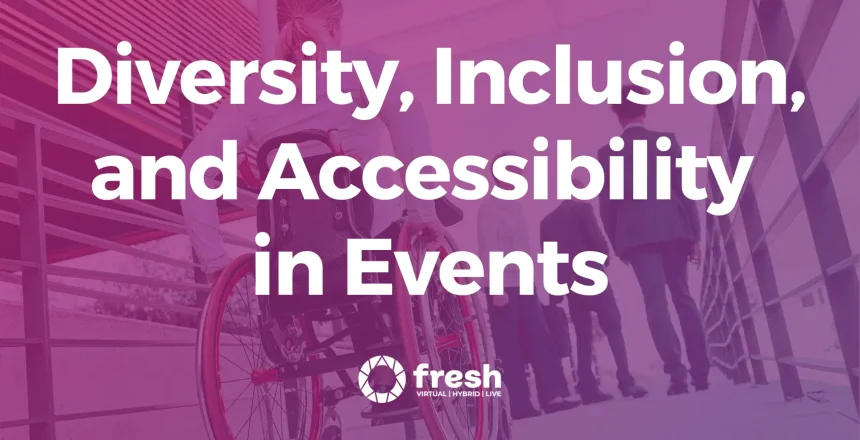Diversity, inclusion, and accessibility have become essential factors for events to ensure that attendees feel welcome, valued, and able to participate fully. These values are not only moral imperatives but also critical for the success of events. In this blog, we will discuss the importance of diversity, inclusion, and accessibility in events and how to ensure they are present.
Diversity means recognising and valuing the differences between people. Different races, ethnicities, genders, sexual orientations, ages, and physical abilities represent diversity in an event. Inclusion means creating an environment where all attendees feel welcomed and represented. Accessibility means ensuring that everyone, regardless of ability, can access and participate in the event.
Events can demonstrate diversity through the choice of speakers, panellists, and performers. Inviting a diverse group of people to participate in an event brings different perspectives, challenges assumptions, and ultimately contributes to a richer and more rewarding experience for everyone involved. For example, having a panel on women in leadership or a keynote by a diverse business leader can add a different dimension to an event.
Inclusion can be demonstrated through the promotion of safe spaces and creating an environment where everyone feels welcome and respected. Event organisers can ensure everyone can participate by providing sign language interpreters, closed captioning, and wheelchair ramps, amongst other accessibility options. Offering translators for multiple languages is another excellent way to ensure that everyone has an opportunity to communicate effectively.
Additionally, it’s essential to understand attendees’ needs. For example, those with sensory processing difficulties might struggle with loud environments, so organisers could reduce noise levels at events to make these attendees feel more comfortable.
In conclusion, diversity, inclusion, and accessibility are essential components in organising a successful and engaging event. Event organisers should make sure to prioritise inviting diverse speakers, providing accommodations for attendees with physical and cognitive differences, and creating a safe, welcoming environment for everyone. Taking these steps will ensure that all attendees feel valued, engaged and represented at the event.
Chat with our team today
Read More

You Need to Invest in AV for Your Next Event. Here’s Why.

Event Logistics Without the Headache: How to Keep It Fresh (Literally)

The Impact of AV Technology in Creating Immersive Event Experiences

Top Event Trends for 2025: AV, Logistics, and Videography

Mastering IT Channel Events: A Logistics Guide for Vendors



